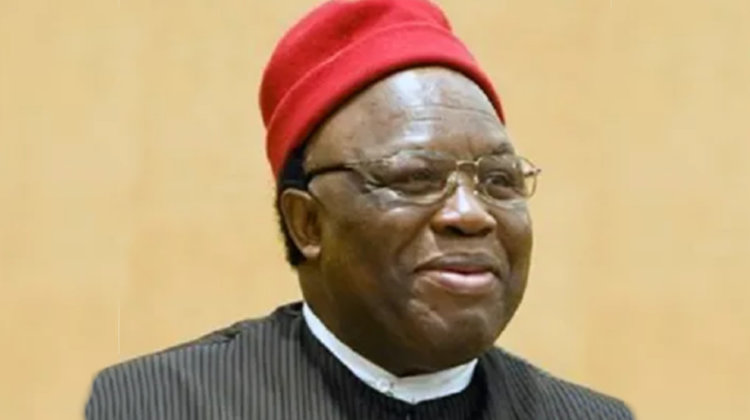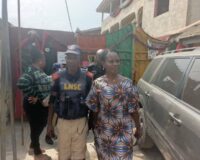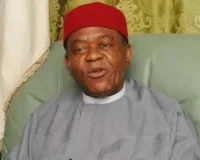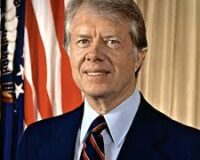Those thinking the Southeast has a plan to exit Nigeria should perish the thought. Ndigbo are not secessionists, nor separatists,” Ohanaeze President, Prof George Obiozor, said at a news conference yesterday.
The Apex Igbo socio-political reiterated its resolve to ensure that a Southeasterner becomes Nigeria’s President next year.
At the briefing in Enugu, the Enugu State capital, the group unveiled Political Action Committee to ensure work to actualise the dream of an Igbo man becoming President Muhammadu Buhari’s successor in 2023.
Reiterating the Igbo’s preparedness to contest and win the coveted seat, Prof Obiozor said the Political Action Committee under his chairmanship, will Ohanaeze’s Secretary-General, Ambassador Okey Emuchay, will serve as the Secretary.
The committee, he added, would be more persuasive in approaching non-Igbo politicians while playing advisory role to Igbo aspirants.
Obiozor said: “Once more may I repeat…, Ndigbo are not secessionists or separatists; Igbos are prepared and deserve the Presidency. It is politically defensible and morally justifiable.
“To realise this, the National Executive council of Ohanaeze Ndigbo Worldwide has established the Political Action Committee to be chaired by the President General, Ambassador Professor George Obiozor, while the Secretary General, Ambassador Okey Emuchay, MFR will serve as the Secretary. Full composition will be done soon”.
He described Igbo presidency in 2033 as a right decision and an idea, whose time has come.
On the issue of the Independent Peoples of Biafra (IPOB) and incarceration of its leader, Nnamdi Kanu, Obiozor said the apex Igbo body remained consistent in asking for political solution to the problem, including prerogative of mercy for Kanu’s freedom and amnesty.
The Ohanaeze leader said: “It is said in the Bible Ecclesiastes 3,’ that to everything there is season and a time to every purpose under the heaven; A time to be born and a time to die, a time to plant and a time to pluck up that which is planted.
“The essence of the above quotation is to remind Nigerians and Nigeria that at the present age of our country today (about 62 years), we need introspective and retrospective thinking in order to reassess our journey so far as a nation or as a country. In doing so includes serious re-examination of our history as one nation.
“If the truth must be told, the nation has made two consistent mistakes that have worsened all other problems leading the nation to near breaking points.
“Those two devils in Nigerian politics are power sharing and social injustice. In all we drifted into these two problems with nonchalance or with ease, and sometimes oblivious of their consequences until what we think is a simple or easy problem develops into a national disaster or catastrophy.
“For those who can remember, how did we get into the western region crisis in the 1960s? How did we get to the civil war (1967-1970). How did we get to NADECO (Abiola crisis) and even Southsouth Avengers?
“Today, the situation of the country is not totally different but even more complicated. Today indeed, the way things are, with communication and modern technology, our country is set not only at the usual breaking points which were more easily controlled and contained in the past to preserve Nigerian unity, but a point of synchronized national crisis which will be more difficult to be controlled or contained today.”
Lamenting the prevalence of ethno-regional nationalism and the attendant recession of Nigerian nationalism, Obiozor insisted that it will require pan-Nigerians like Igbo to reinvigorate the nation’s path to unity.
He said: “Nigeria was a country negotiated and amalgamated under some agreements that balanced sensitive issues of power-sharing and balancing of power regardless of any other conditions. It was a system where every person had an equal chance in life regardless of their tribe, race or religion.
“In 1960 at independence, our founding fathers – Dr. Nnamdi Azikiwe, Sir Ahmadu Belo, Chief Obafemi Awolowo, Tafawa Balewa, joyfully embraced both independence and all existing institutions establishing Nigerian unity.
“Those founding fathers later found out that our country Nigeria, had inherent measures of historic conflict of ideas and ideals. Consequently, all Nigerian leaders even today have utilized Nigeria’s ‘Doctrine of creative use of conflicts and crises’. This old doctrine can be used once more to save the country and control the present crisis.
“But today also and in terms of nationalism, only few countries in the world have fallen so fast as Nigeria in recent years, Nigerians must recognize that something went wrong.
“Nigerian nationalism is receding as ethno- regional nationalism is growing astronomically. It is time to rebuild and restore Nigerian nationalism and national spirit. As the national situation is today, it will require Pan Nigerians like Igbos to reinvigorate the nation’s path to unity.
“And a Southeast Igbo president of Nigeria in 2023 will be one of the most critical but positive decision of the nation’s history because, it is the right decision and an idea whose time has come.
“For those in doubt, please be assured that he/she will focus on what can be done, instead of arguing over what is impossible,” Obiozor stated.







